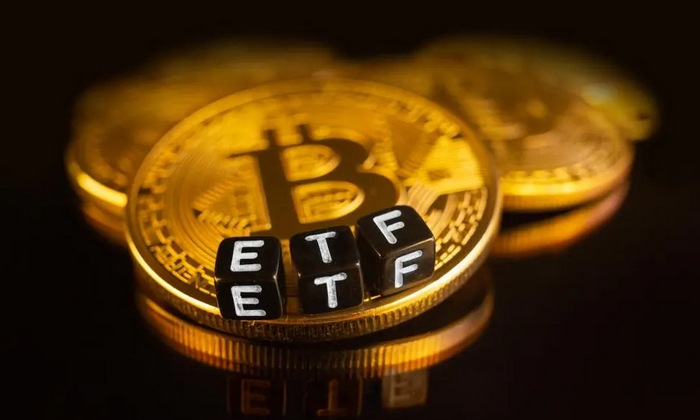-
 Bitcoin
Bitcoin $83,352.6959
0.56% -
 Ethereum
Ethereum $1,591.8836
0.92% -
 Tether USDt
Tether USDt $0.9995
0.01% -
 XRP
XRP $2.0570
1.26% -
 BNB
BNB $589.5540
0.94% -
 Solana
Solana $124.4690
4.65% -
 USDC
USDC $0.9999
0.01% -
 Dogecoin
Dogecoin $0.1620
1.35% -
 TRON
TRON $0.2490
4.57% -
 Cardano
Cardano $0.6326
-0.63% -
 UNUS SED LEO
UNUS SED LEO $9.3617
-0.77% -
 Chainlink
Chainlink $12.7114
0.26% -
 Avalanche
Avalanche $19.0283
0.48% -
 Stellar
Stellar $0.2381
0.20% -
 Shiba Inu
Shiba Inu $0.0...01225
1.40% -
 Hedera
Hedera $0.1705
-3.15% -
 Toncoin
Toncoin $2.8989
-1.43% -
 Sui
Sui $2.2005
-0.78% -
 Bitcoin Cash
Bitcoin Cash $313.0836
2.96% -
 MANTRA
MANTRA $6.3642
-1.20% -
 Litecoin
Litecoin $75.9837
-1.81% -
 Polkadot
Polkadot $3.5836
1.17% -
 Dai
Dai $0.9999
-0.02% -
 Bitget Token
Bitget Token $4.3980
2.74% -
 Hyperliquid
Hyperliquid $15.6294
1.71% -
 Ethena USDe
Ethena USDe $0.9989
0.02% -
 Pi
Pi $0.6963
14.69% -
 Monero
Monero $208.8784
3.10% -
 Uniswap
Uniswap $5.2916
0.98% -
 OKB
OKB $52.8390
-1.23%
what is a spot etf for bitcoin
Spot ETFs for Bitcoin facilitate convenient and regulated exposure to the cryptocurrency without the complexities of direct trading and provide diversification options for investors.
Oct 28, 2024 at 05:20 pm

What is a Spot ETF for Bitcoin?
A spot exchange-traded fund (ETF) for Bitcoin is a type of financial instrument that tracks the price of Bitcoin and allows investors to gain exposure to the cryptocurrency without having to purchase and hold it directly. Spot ETFs are traded on regulated exchanges like stocks, and they offer several advantages over traditional Bitcoin trading, including:
- Easier access: Spot ETFs make it much easier for investors to gain exposure to Bitcoin, as they can be bought and sold like any other stock on an exchange. This eliminates the hassle of setting up a cryptocurrency wallet and dealing with the complexities of cryptocurrency trading.
- Lower risk: Spot ETFs are backed by the assets of the underlying fund, which provides a level of protection for investors. Unlike investing in Bitcoin directly, investors do not have to worry about the risk of losing their funds due to hacking or theft.
- Regulatory compliance: Spot ETFs are regulated by government agencies just like other financial instruments, which provides investors with a degree of assurance and confidence.
- Diversification: Spot ETFs can be used as part of a diversified portfolio, allowing investors to balance their risk by investing in multiple assets.
- Cost-effectiveness: Spot ETFs often have lower fees than direct Bitcoin trading platforms, making them a more cost-effective way to gain exposure to the cryptocurrency.
How do Spot ETFs Work?
Spot ETFs track the price of Bitcoin by investing in a basket of securities that are highly correlated with the cryptocurrency, such as Bitcoin futures contracts or physically traded Bitcoin. When the price of Bitcoin rises, the value of the ETF shares typically rises as well. Conversely, if the price of Bitcoin falls, the value of the ETF shares typically falls as well.
Investors can buy and sell spot ETFs on exchanges in the same way they would buy and sell stocks. The price of an ETF share is determined by the supply and demand of the fund, and it may deviate from the actual price of Bitcoin in the short term.
Benefits of Spot ETFs
There are many benefits to investing in spot ETFs for Bitcoin, including:
- Convenience and ease of use: Spot ETFs are much easier to trade than Bitcoin directly, as they can be bought and sold on regulated exchanges like stocks.
- Lower risk: Spot ETFs are backed by the assets of the underlying fund, providing a level of protection for investors.
- Regulatory compliance: Spot ETFs are regulated by government agencies, giving investors confidence in the safety and transparency of the fund.
- Diversification: Spot ETFs can be used to diversify a portfolio, reducing risk and improving returns.
- Cost-effectiveness: Spot ETFs often have lower fees than direct Bitcoin trading platforms.
Risks of Spot ETFs
There are also some risks associated with investing in spot ETFs for Bitcoin, including:
- Price volatility: The price of Bitcoin is highly volatile, and this volatility can be reflected in the price of spot ETFs.
- Counterparty risk: Spot ETFs are backed by the assets of the underlying fund, which means that investors are exposed to the risk of the fund manager defaulting on its obligations.
- Tracking error: The price of a spot ETF may not always perfectly track the price of Bitcoin.
Disclaimer:info@kdj.com
The information provided is not trading advice. kdj.com does not assume any responsibility for any investments made based on the information provided in this article. Cryptocurrencies are highly volatile and it is highly recommended that you invest with caution after thorough research!
If you believe that the content used on this website infringes your copyright, please contact us immediately (info@kdj.com) and we will delete it promptly.
- PI Token Has Staged a Furious Comeback, Skyrocketing Over 15% to Reclaim the $0.70 Mark
- 2025-04-12 19:30:13
- 119 Million Pi Network Tokens to Be Released by Month-End
- 2025-04-12 19:30:13
- Don't Kick Yourself Over Early XRP? This AI Presale Token Might Be Your Redemption
- 2025-04-12 19:25:14
- Bitcoin Cash (BCH) Breaks Out Again — Is a 2x Rally Underway?
- 2025-04-12 19:25:14
- Ethereum Bears Win Big as Short ETFs Dominate 2025 Rankings
- 2025-04-12 19:20:13
- BitMEX Co-Founder Arthur Hayes Urges Market Participants to 'Buy Everything'
- 2025-04-12 19:20:13
Related knowledge

What is the difference in returns between long-term holding of a Bitcoin ETF and holding Bitcoin directly?
Apr 09,2025 at 04:15am
When considering the difference in returns between long-term holding of a Bitcoin ETF and holding Bitcoin directly, it's essential to understand the nuances and factors that affect each investment option. Both approaches have their unique advantages and potential drawbacks, which can significantly impact the overall returns over time. Understanding Bitc...

How is the "roll cost" of a futures Bitcoin ETF generated?
Apr 08,2025 at 01:22pm
The 'roll cost' of a futures Bitcoin ETF is a critical concept for investors to understand, as it directly impacts the performance of the ETF. In this article, we will delve into the mechanics of how the roll cost is generated, exploring the underlying processes and factors that contribute to this cost. Understanding Futures ContractsFutures contracts a...

How can the premium or discount of a Bitcoin ETF be narrowed through an arbitrage mechanism?
Apr 09,2025 at 12:07am
Arbitrage mechanisms play a crucial role in narrowing the premium or discount of a Bitcoin Exchange Traded Fund (ETF). Understanding how these mechanisms work can provide valuable insights into the dynamics of Bitcoin ETFs and their relationship with the underlying asset. This article will delve into the specifics of how arbitrage can be used to align t...

What factors affect the bid-ask spread of a Bitcoin ETF?
Apr 08,2025 at 08:50pm
The bid-ask spread of a Bitcoin Exchange Traded Fund (ETF) is a critical metric that investors and traders closely monitor. It represents the difference between the highest price a buyer is willing to pay (bid) and the lowest price a seller is willing to accept (ask). Several factors influence this spread, and understanding them can help investors make ...

How is the seed capital of a Bitcoin ETF used?
Apr 10,2025 at 02:15pm
The seed capital of a Bitcoin ETF plays a crucial role in the establishment and operation of the fund. This initial investment is used to create the fund's underlying assets, manage operational costs, and ensure the ETF can start trading on an exchange. Understanding how this seed capital is utilized provides insight into the mechanics of Bitcoin ETFs a...

What is the difference between "physically backed" and "synthetic" Bitcoin ETFs in terms of holding assets?
Apr 10,2025 at 04:56pm
Bitcoin Exchange Traded Funds (ETFs) have become a popular way for investors to gain exposure to the cryptocurrency market without directly owning the underlying asset. There are two primary types of Bitcoin ETFs: physically backed and synthetic. Understanding the differences between these two types, particularly in terms of how they hold assets, is cru...

What is the difference in returns between long-term holding of a Bitcoin ETF and holding Bitcoin directly?
Apr 09,2025 at 04:15am
When considering the difference in returns between long-term holding of a Bitcoin ETF and holding Bitcoin directly, it's essential to understand the nuances and factors that affect each investment option. Both approaches have their unique advantages and potential drawbacks, which can significantly impact the overall returns over time. Understanding Bitc...

How is the "roll cost" of a futures Bitcoin ETF generated?
Apr 08,2025 at 01:22pm
The 'roll cost' of a futures Bitcoin ETF is a critical concept for investors to understand, as it directly impacts the performance of the ETF. In this article, we will delve into the mechanics of how the roll cost is generated, exploring the underlying processes and factors that contribute to this cost. Understanding Futures ContractsFutures contracts a...

How can the premium or discount of a Bitcoin ETF be narrowed through an arbitrage mechanism?
Apr 09,2025 at 12:07am
Arbitrage mechanisms play a crucial role in narrowing the premium or discount of a Bitcoin Exchange Traded Fund (ETF). Understanding how these mechanisms work can provide valuable insights into the dynamics of Bitcoin ETFs and their relationship with the underlying asset. This article will delve into the specifics of how arbitrage can be used to align t...

What factors affect the bid-ask spread of a Bitcoin ETF?
Apr 08,2025 at 08:50pm
The bid-ask spread of a Bitcoin Exchange Traded Fund (ETF) is a critical metric that investors and traders closely monitor. It represents the difference between the highest price a buyer is willing to pay (bid) and the lowest price a seller is willing to accept (ask). Several factors influence this spread, and understanding them can help investors make ...

How is the seed capital of a Bitcoin ETF used?
Apr 10,2025 at 02:15pm
The seed capital of a Bitcoin ETF plays a crucial role in the establishment and operation of the fund. This initial investment is used to create the fund's underlying assets, manage operational costs, and ensure the ETF can start trading on an exchange. Understanding how this seed capital is utilized provides insight into the mechanics of Bitcoin ETFs a...

What is the difference between "physically backed" and "synthetic" Bitcoin ETFs in terms of holding assets?
Apr 10,2025 at 04:56pm
Bitcoin Exchange Traded Funds (ETFs) have become a popular way for investors to gain exposure to the cryptocurrency market without directly owning the underlying asset. There are two primary types of Bitcoin ETFs: physically backed and synthetic. Understanding the differences between these two types, particularly in terms of how they hold assets, is cru...
See all articles





















![Crypto Otaku - CRYPTO CHAOS! 83K BITCOIN! CRYPTO RALLY!! XCN , JASMY , SWFTC LEAD!!! [Episode 228] Crypto Otaku - CRYPTO CHAOS! 83K BITCOIN! CRYPTO RALLY!! XCN , JASMY , SWFTC LEAD!!! [Episode 228]](/uploads/2025/04/12/cryptocurrencies-news/videos/crypto-otaku-crypto-chaos-k-bitcoin-crypto-rally-xcn-jasmy-swftc-lead-episode/image-1.webp)

































































